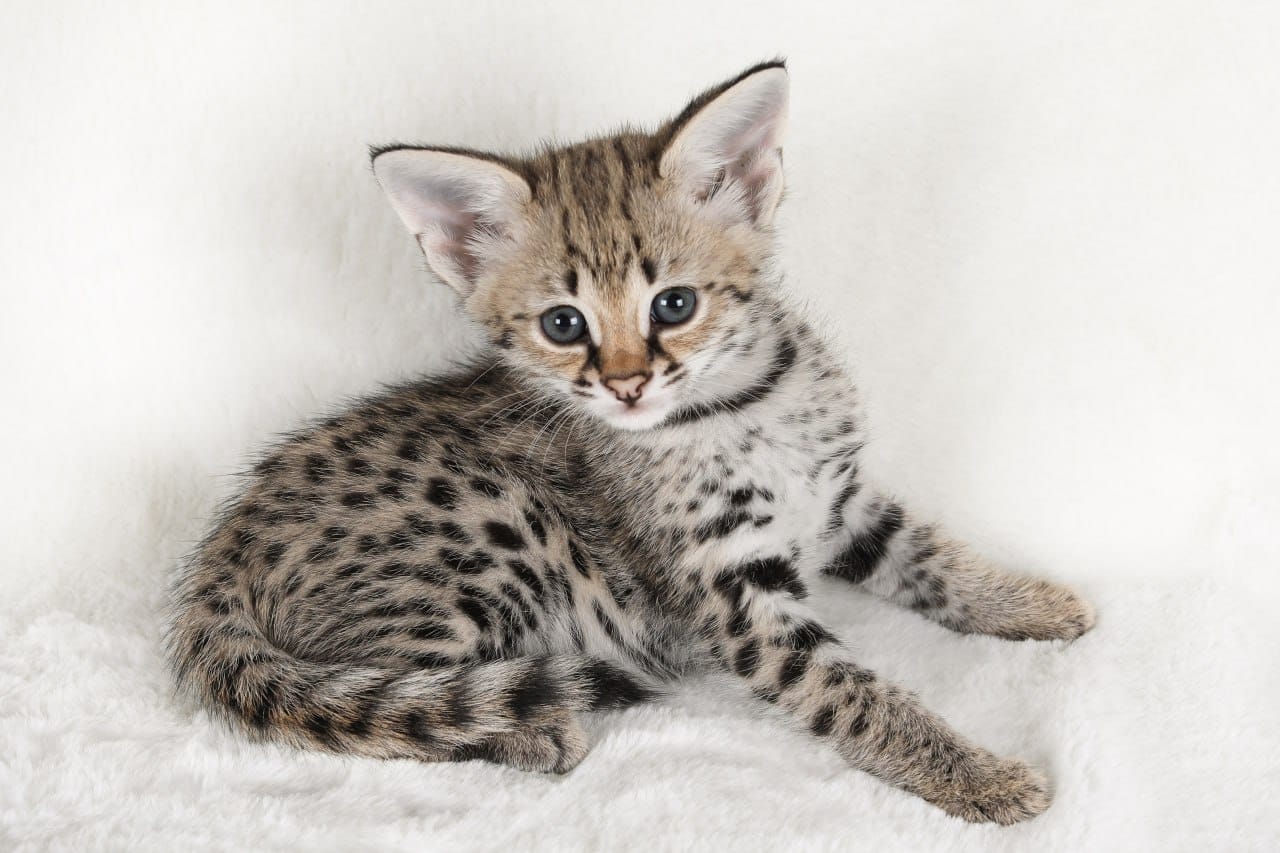
Feeding Savannah Cats: From F1 to Other Generation
Savannah cats are a unique breed that requires a carefully balanced diet to maintain their health and energy levels. Depending on their generation (F1, F2, F3, etc.), their dietary needs can vary slightly, especially considering the higher percentage of wild genes in the earlier generations. Here are some guidelines on how to feed Savannah cats from F1 to other generations:
Basic Principles of Feeding Savannah Cats
- High-Quality Protein:
- The primary component of a Savannah cat’s diet should be high-quality protein. Fresh, raw meats such as chicken, turkey, beef, rabbit, and fish are excellent sources. For higher generation cats (F1 and F2), protein intake might need to be higher to match their active nature.
- Organ meats such as liver, heart, and kidneys should also be included for additional nutrients.
2. Bones:
- Raw bones can be beneficial for dental health and provide calcium. Chicken wings, necks, and other small bones are suitable. Make sure the bones are raw to avoid splintering.
- Bones should be appropriate for the size and chewing capabilities of the cat.
3. Whole Prey:
- Including whole prey such as mice, quail, or day-old chicks in the diet can be beneficial, especially for higher-generation Savannahs. This provides a natural and balanced diet that includes meat, bones, and organs.
- Ensure these animals are raised in hygienic conditions and free from harmful substances.
4. Supplements:
- Supplements may be necessary to ensure a well-rounded diet. Omega-3 fatty acids, taurine, and other vitamins and minerals can be added based on veterinary recommendations.
5. Eggs:
- Occasionally, raw eggs can be provided as a source of protein and healthy fats. This should be an occasional treat, not a staple part of the diet.
6. Water:
- Fresh, clean water should always be available. Ensure that water bowls are always filled and clean.
Generational Differences
F1 Savannah Cats
- Diet Needs: F1 Savannahs have the highest percentage of Serval genes, requiring a diet closer to their wild ancestors. Higher protein intake and whole prey are recommended.
- Behavior: These cats are very active and require more calories to match their energy levels.
F2 Savannah Cats
- Diet Needs: F2 Savannahs still have a significant amount of Serval genes. A high-protein diet is essential, with occasional whole prey items.
- Behavior: Slightly less wild than F1, but still highly energetic. Ensure they have enough nutrition to support their active lifestyle.
F3 and Later Generations
- Diet Needs: These generations have a more balanced mix of domestic and Serval genes. A high-quality raw meat diet, supplemented with bones and organs, is sufficient. Whole prey can be included but is not as critical as for F1 and F2.
- Behavior: These cats are more domestic in behavior, but still active and playful. Maintain a high-protein diet to keep them healthy and active.
Foods to Avoid
- Cooked Bones: They can splinter into sharp fragments and pose a danger to the animal.
- Large Quantities of Raw Fish: This can cause a deficiency in thiamine (vitamin B1) and lead to health issues.
- Dairy Products: Most adult Savannahs are lactose intolerant, which can cause digestive issues.
- High-Carbohydrate and Sugary Foods: These are not suitable for carnivores and can lead to obesity and other health problems.
Providing the right diet for a Savannah cat requires careful attention and balance to ensure their health and activity levels. Always consult with a veterinarian to develop an optimal feeding plan for your pet.
